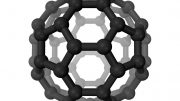
Guardian of the genome oversees quality control in the production of sperm. Credit: Yale University
Researchers at Yale University have discovered how the regulatory gene, p53, oversees quality control in the production of sperm and possibly other cells with damaged DNA. While studying the sperm production of mice, the researchers discovered that Pumilio 1 controls eight cellular processes that interact with p53 in sperm production and when deleted in mice, sperm production and fertility are reduced.
Yale researchers have discovered how the “guardian of the genome” oversees quality control in the production of sperm — and perhaps in many other cells as well.
The research published online on February 16 in the journal Current Biology opens up the potential of developing new forms of birth control and fertility treatment — and even new ways to combat many forms of cancer.
Sperm and other cells go through a sort of inspection process triggered by a key regulatory gene, p53, which orders the destruction of cells with damaged DNA. This ability has earned it the title of “guardian of the genome,” and damage to p53 has been implicated in many forms of cancer.
By studying sperm production in mice, “we have identified p53’s new boss, which controls p53 in a way that had been hypothesized before but had not been shown in any animal,” said Haifan Lin, professor of cell biology and genetics, director of the Yale Stem Cell Center, and senior author of the paper.
The Yale team found among more than 1,500 micro-RNA molecules involved in many cellular processes, a regulator called Pumilio 1 controls eight that interact with p53 in sperm production. When Pumilio 1 is deleted in mice, sperm production and fertility are reduced because p53 becomes over active and orders the destruction of too many sperm. The mechanism may play a key role in male fertility, but it could also be implicated in many biological processes because protection of DNA is so fundamental to life, Lin noted.
“This is a crucial gate-keeping mechanism which allows bad cells, but not good cells, to be killed,” Lin said. “This same process may be at play in other tissues, such as cancer.”
Dong Chen was lead author of the study. Wei Zheng, Aiping Lin, Katherine Uyhazi, and Hongyu Zhao are other contributing authors from Yale.
Reference: “Pumilio 1 Suppresses Multiple Activators of p53 to Safeguard Spermatogenesis” by Dong Chen, Wei Zheng, Aiping Lin, Katherine Uyhazi, Hongyu Zhao and Haifan Lin, 16 February 2012, Current Biology.
DOI: 10.1016/j.cub.2012.01.039
The research was funded by the National Institutes of Health (NIH) and supported by the Yale Clinical and Translational Science Award grant from the National Center for Advancing Translational Sciences at the NIH.









The gate keeping mechanism of micro-RNA Pumilio 1 on gene p53’s action moderating its activity reminds the action of i-RNA (interfering RNA) on slicing mRNA where their actions are unwanted.The checks and counter-checks of nature to allow only the fittest one to survive is good but here in sperms they are bad in reducing fertility. Thank You.